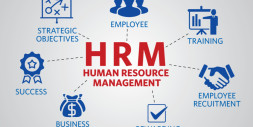Revolutionizing Customer Engagement WhatsApp Automation Solution
Introduction
In the age of instant messaging and seamless communication, traditional methods of customer interaction no longer suffice. For one service-based company, this realization prompted a partnership with Zolute, a leading technology solutions provider, to overhaul their customer communication strategy. This case study highlights how Zolute leveraged WhatsApp automation to revolutionize the client's customer service and engagement.
Client Background
Our client, a service-based company operating in the logistics and supply chain industry, had a pressing challenge. Historically, their customers had to rely on phone calls or visit their website to inquire about the status of their orders, seek assistance, or receive updates. This cumbersome process not only led to operational inefficiencies but also left customers yearning for a more convenient and responsive way to interact with the company.
The Challenge
The client's primary challenges were:
-
Inefficient Communication: Customers had to call the company's customer service team or visit the website for updates or assistance, resulting in a time-consuming and often frustrating experience.
-
High Operational Costs: The company's traditional communication channels required substantial resources, both in terms of staff and infrastructure.
-
Lack of Real-time Updates: Customers were often left in the dark about the status of their orders, leading to dissatisfaction and lost business opportunities.
Zolute's Solution
Zolute proposed an innovative solution: leveraging WhatsApp automation to streamline customer communication and engagement. The key components of this solution were:
-
Fully Automated Conversation System: Zolute designed and implemented a sophisticated WhatsApp chatbot that could handle a wide range of customer queries and interactions. This chatbot could provide order updates, answer frequently asked questions, and even facilitate booking and scheduling.
-
Notification and Update System: Through WhatsApp, customers would receive real-time notifications and updates about their orders, ensuring they were always informed about the progress of their shipments.
-
Conversational Customer Service: The WhatsApp bot was programmed to handle common customer service inquiries, such as tracking orders, changing delivery addresses, or resolving issues, providing instant responses and resolutions.
-
Integration with Twilio API: To facilitate WhatsApp integration, Zolute utilized the Twilio API, which allowed the client to send and receive messages on the WhatsApp platform securely.
-
AWS Lambda, SQS, and SNS: Zolute designed the automation backbone using Amazon Web Services (AWS) technologies. AWS Lambda, Simple Queue Service (SQS), and Simple Notification Service (SNS) were integrated to ensure the system's scalability, reliability, and cost-effectiveness.
Results and Benefits
The implementation of Zolute's WhatsApp automation solution led to several significant benefits for the client:
-
Enhanced Customer Experience: Customers could now effortlessly interact with the company through WhatsApp, receiving updates and assistance in real time. This greatly improved the overall customer experience.
-
Cost Savings: By automating a significant portion of customer interactions, the client reduced operational costs associated with handling phone calls and website inquiries.
-
Streamlined Operations: The company's customer service team could focus on more complex issues, while routine inquiries were efficiently handled by the chatbot.
-
Increased Customer Engagement: The interactive nature of WhatsApp messaging resulted in higher customer engagement and satisfaction. The company could also proactively engage with customers for upselling and cross-selling opportunities.
-
Data and Insights: Zolute's solution allowed the client to collect valuable customer data, enabling them to better understand customer preferences and behaviors for future business decisions.
Conclusion
Zolute's innovative use of WhatsApp automation, coupled with the integration of Twilio API and AWS services, transformed our client's customer communication strategy. By providing a convenient, real-time, and efficient channel for customer interaction, the service-based company saw a marked improvement in customer satisfaction, operational efficiency, and cost savings. This successful partnership underscores the potential of technology-driven solutions in revolutionizing customer engagement for service-based companies in the digital age.
Project Details
- Retail
- 2021






